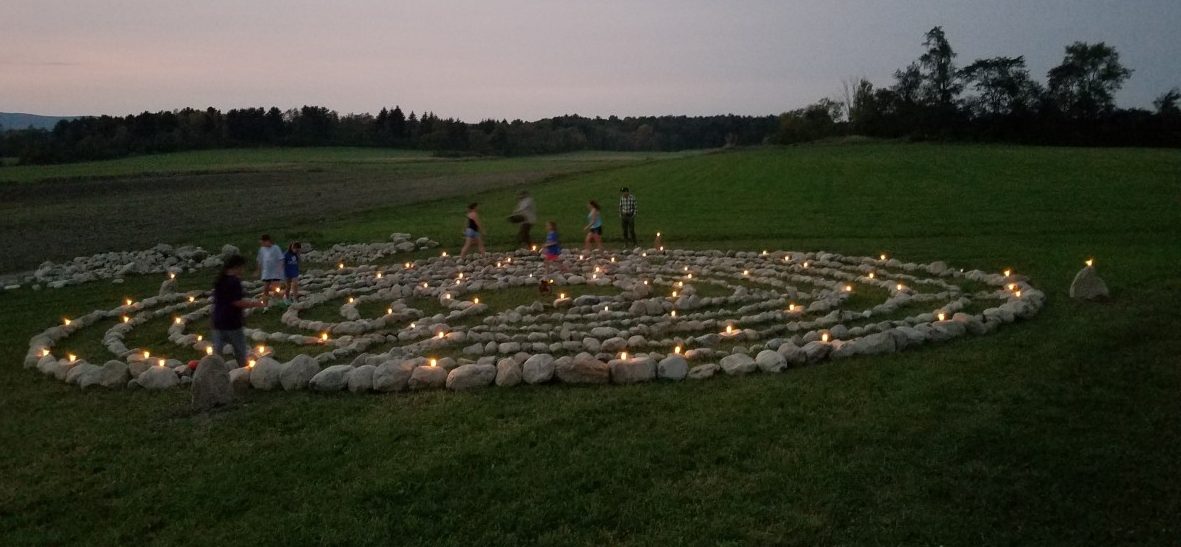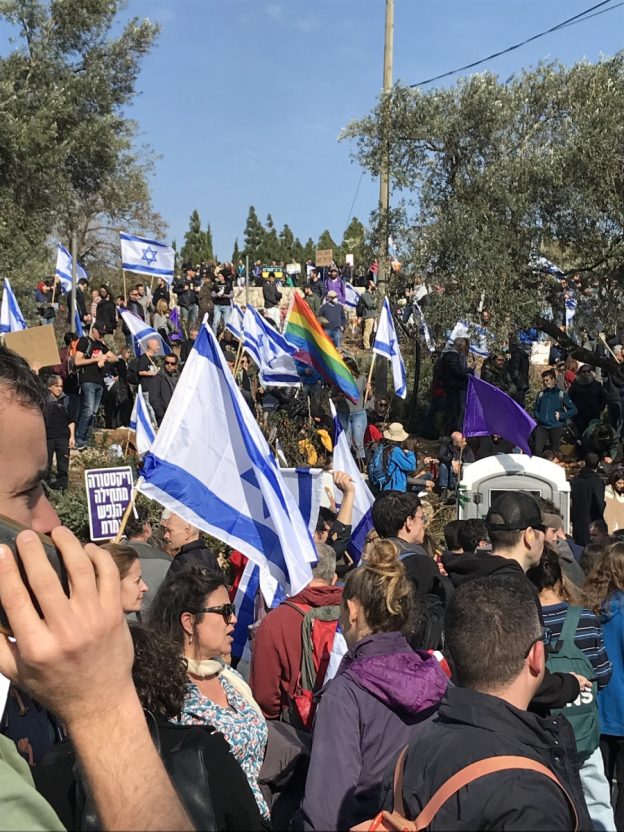Shalom to everyone from Israel! As many of you know, I am on a personal leave this year from Middlebury as my family and I spend the year living in Jerusalem. Most days my kids go to school in the city, my husband Matt continues his remote work as usual, and I study Talmud and other rabbi-like things at the Conservative Yeshiva, which is a co-ed Bet Midrash (house of study) to learn Jewish texts.
What I didn’t anticipate in planning this year is that this past fall’s elections would lead to a return of Netanyahu as Prime Minister with an especially right-wing coalition. Of the many laws this government has proposed, the one that is getting the most attention is an attempt at reforming or overhauling the laws governing the appointment of Supreme Court judges. If passed, many feel that this would decimate the checks and balances that currently exist in Israel’s national government. This has led to mass protests that have been going on weekly for 3 months. We are now in the week when the final vote for this law is scheduled, and I just came back from a protest at the Knesset (Israel’s parliament) which the media is estimating at 100,000 people.
So far every protest I have attended has had a fervent yet joyous feel to it—of people making their voices heard and exercising their rights. I have been lucky enough not to be caught in any harsh crowd control situations and I have not seen any violence on the part of protestors. One of the most interesting things for me is the experience of literally being surrounded by Israeli flags at these protests. The Israeli flag can be a contentious symbol on campus and in Israel—for some symbolizing illegal Israeli settlement of the West Bank and oppression of Palestinians, as well as a blind nationalism. Also, in America, a protest full of American flags is not exactly where I would usually find myself, so it feels odd here too. However, this movement to preserve democracy in Israel has reclaimed the Israeli flag for itself, and it is a powerful visual symbol of how it understands itself as patriotic.
These protests are not without criticism—mainly that they have failed to create a common cause with Palestinians in Israel. The slogan of the anti-occupation block which I often stand with sums up the criticism well: “There is no democracy when there is occupation.” But just seeing so many people take to the streets against a government that is a threat to minorities does give one some hope that this could lead to a wider protest against the occupation. So despite the disruption of general strikes, the uncertainty we are still in today of what Netanyahu’s next move will be, and the ongoing cycle of violence which primarily impacts Palestinians and sometimes Jews in the West Bank—and occasionally manifests in Jerusalem and Tel Aviv—I am still glad we are here at this historic moment.
If you want to learn more about what is happening here, the New York Times is reporting frequently on it, you can access the English version of Ha-aretz through the Middlebury College library, and The Times of Israel website has a good live blog that you can follow as events unfold.
Happy Passover to all who are celebrating, and I really look forward to being back on campus starting this summer—meeting those of you whom I don’t yet know, and seeing the rest of you again.
–Rabbi Danielle

